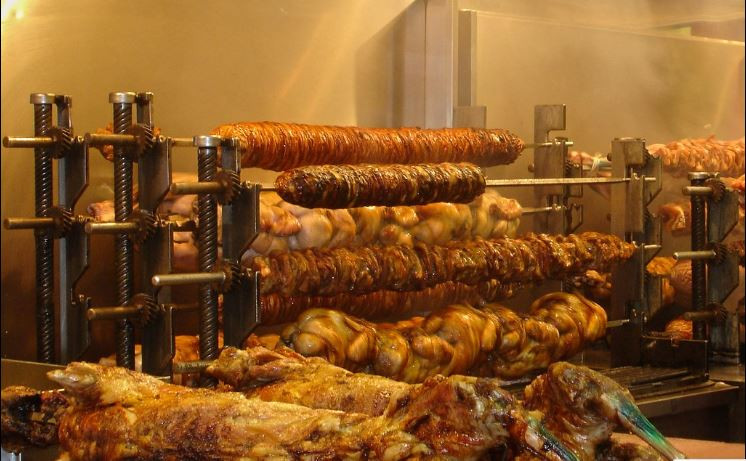The word Tsiknopepti comes from the word “tsikna” (the smell of roast meat) and from the word “Pepti”
THE Grill Day is a celebration of the orthodox tradition in which large quantities of meat are consumed.
The reason it is held on Thursday is that the Orthodox Church considers them important Wednesday and Friday fasts. Thus, the intermediate day was chosen.
The week before Chiknopempti (first) is called Pronunciationthe week of Chiknopempti (second) is called Creatine and the week following Chiknopempti (Tuesday) is called her Cheese eater. After these weeks, the Great Lentthat is, the fast before Easter.
Friday is the day of his second week Triodiou, where people prepare for the great fast of Lent. With this custom, each family is given the opportunity to consume whatever meat they have left before the beginning of the great fast, so that they can slowly enter the climate of “non-meat eating”.
The word Chiknopempti comes from the word “chikna” (the smell of roasting meat) and from the word “Thursday”.
It has been established to dominate the Red color whether that’s the meat, or the wine, or… both! So Chiknopempti reminds of Easter and the joy of the Resurrection.
What are we celebrating
The origin of this strange custom is lost in the depths of time. However, it seems to be associated with the Bacchic festivals of the ancient Greeks and Romans. They considered feasting and feasting as a rite for the good euphoria of the earth in spring.
Also, the Grill Day is, essentially, the beginning of the events for the Carnivalsince next week they follow the Carnival and the Green Monday.
Tsiknopepti customs throughout Greece
- In Corfu the so-called “Corfiat Petegoletsia” are held. The word Gossip means gossip. It takes place on the evening of Tsiknopepti, in the Piazza near the “Kukounara” location of Corfu.
- In Patra, we have the custom of Giannoula of Koulouros. Giannoula, according to tradition, believes that Admiral Wilson is coming to marry her and waits for him like a madwoman in the harbor in vain. Thus, on Tsiknopepti the Patrinos dress someone as a bride, or put a bride effigy in the harbor and have fun around it.
- In Serres they light big fires in the alans and after roasting the meat, jump over them.
- In Komotini, housewives almost burn a hen, for the family to eat on Shrove Sunday. Tradition also states that on Chiknopemptis engaged couples must exchange edible gifts. The man must send the “kurko”, i.e. a hen, and the woman baklava and a stuffed hen.
- In Thebesthe “Vlach wedding” begins, which begins with the courtship of two young people, continues with the wedding and ends on Clean Monday with the procession of the bride’s dowries and the feast of the sympathizers.
- In Ioon the evening of Tsiknopepti masquerades girded with sheep bells cross the Chora and visit houses and shops.
- In Porosthe tradition forces the young people to steal a… spaghetti, which they will put under their pillow to see who they will marry.
- Throughout the Peloponnese they slaughter pigs from which they make a variety of other foods, including curds, crackers, sausages, gournaloife and pickles.
- In Skopelosthe residents make an appointment in Pefkos, to continue the feast and drinking all together.
HAPPY THURSDAY!
Source: Skai
I have worked as a journalist for over 10 years, and my work has been featured on many different news websites. I am also an author, and my work has been published in several books. I specialize in opinion writing, and I often write about current events and controversial topics. I am a very well-rounded writer, and I have a lot of experience in different areas of journalism. I am a very hard worker, and I am always willing to put in the extra effort to get the job done.












